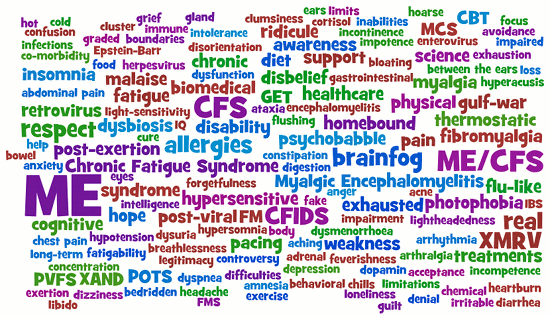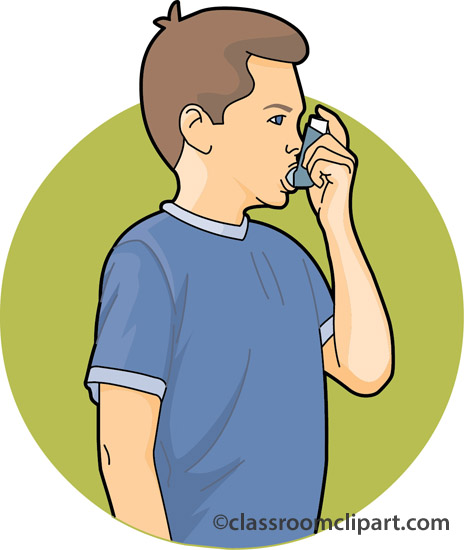Asthma is a chronic condition that causes inflammation and narrowing of the bronchial tubes (passageways) that allow air to enter and leave the lungs. It is characterised by a whistling or wheezy sound in the chest when you breathe and frequent shortness of breath.
Asthma medications might very well help you to control your symptoms in the event of an emergency, but the long-term use of these medications, can certainly worsen the symptoms. Some of the side effects of the use of asthma medications include upsetting the balance of the endocrine and immune systems and some of these drugs might contribute to other problems such as candida (systemic yeast growth), weight gain, mood changes and acne. Aim to prevent attacks by normalising your body weight, limiting your exposure to irritants, reducing food allergies, getting enough sunshine vitamin and improve your gut health.
Symptoms
- chest tightness
- wheezing
- long-lasting cough
- difficulty breathing
- Sneezing and coughing
- Running out of air as you try to speak or inhale
- Difficulty exercising
- Symptoms similar to those caused by allergies, such as watery and red eyes, itchy throat, or a runny nose — some people can look inside their throats or noses and see redness and swelling
- Swollen glands and puffy lymph nodes in the neck — sometimes people with asthma even feel like they’re choking
- Dry mouth, especially if you begin breathing through the mouth more often instead of the nose
Severe Symptoms
- Bluish fingers and lips – signs of poor circulation and oxygen
- Exhaustion and confusion
- Feeling lightheaded, dizzy and weak
- Symptoms of anxiety, such as sweating and rapid heartbeats
Causes
Doctors and scientists don’t fully understand the etiology of asthma. The number of people diagnosed with asthma has increased exponentially since the 1960s. Doctors and scientists think this is a result of a change in diet, behaviour and environment and a lack of sun exposure which creates vitamin D, may be some of the causes of asthma. Our approach is to remedy the following:
1. Diet
Eating a healthy diet that provides you with a wide variety of foods that are additive and GMO-free and which includes foods that are high in anti-oxidants and nutrients. These ‘clean’ foods will control inflammatory responses and reduce dietary triggers. A healthy WFPB diet will ensure your immune system is functioning optimally.
Be sure to include these foods in your diet:
- Vitamin A: orange and red vegetables. Carotenoids help to reduce asthma attacks, and help to maintain healthy mucous membranes. increase your intake of veggies such as root veggies, sweet potatoes, carrots, leafy greens and berries. Eat from the Rainbow will guide you with other colourful veggie ideas.
- Vitamin B5: Asthmatics require larger amounts of Pantothenic acid as it would appear that they are unable to utilise this vitamin correctly. One of the triggers of asthma is stress and vitamin B5 helps to maintain healthy adrenal function, so source this vitamin from shiitake mushrooms, avocado, sunflower seeds and sweet potatoes
- Vitamin B9: Folate found in green leafy veggies, beans and nuts help to reduce inflammation and allergic reactions. Our Natural Sources page will give you more information.
- Vitamin E and Vitamin C: both are powerful antioxidants which help to detoxify the body and reduce inflammation. Natural sources of these wonderful anti-oxidants are to be found in (Vitamin C) – cruciferous (sulphur-containing) vegetables, berries, leafy greens and citrus fruits. Vitamin e can be found in nuts, seeds and healthy plant oils.
- Omega-3: Omega-3 from nuts and flax seeds can also provide a good dose. Omega-3s help lower the incidence of asthma significantly because they reduce airway inflammation and immune system reactivity.
- Magnesium::Foods containing magnesium have been shown to relax smooth muscles and thereby allow air into and out of the lungs more readily. Low levels of magnesium have been associated with a number of chronic and inflammatory diseases, such as Alzheimer’s disease, asthma, attention deficit disorder and more. Sources include greens, nuts, seeds, beans, cocoa and certain ancient grains.
- Sulphorophane: cruciferous vegetables such as Arugula, Bok Choy, Broccoli, Brussels Sprouts, Cabbage, Cauliflower, Collard Greens, kale and the richest of them all – broccoli sprouts. Research shows that broccoli sprouts is a potent inducer of enzymes which play a critical role in preventing oxidative stress and inflammation.
- Antimicrobials: Natural sources of natural antibiotics such as garlic (eaten crushed and raw), honey, cabbage, raw apple cider vinegar and fermented foods will help overall immune function. Quercitin which is found in apples, peppers, cherries, tomatoes, garlic, onions and mustard seeds, will inhibit inflammation.
- Pre- and Probiotic-rich foods: these foods help to stop allergic reactions from allergans and other proteins that pass through the digestive lining. Raw vegetables, whole grains, beans, seeds and nuts are rich in fibres that ensure you keep your gut bacteria happy and healthy. Follow the link to read more on these foods.
2. Avoid These Foods
Processed foods do not contain sufficient fibres and nutrients. The lack of fibre reduces healthy gut bacteria, depletes stomach acid and renders the digestive process inadequate. A body that is nutrient deficient is stress and is therefore unable to easily neutralise toxins. These toxins as well as the lack of nutrients in a poor diet contribute to inflammation. Foods that you should avoid are dairy, sugar, trans fats and all processed / refined carbs, pre-prepared / fast and fried foods. For more information on which foods to remove from your diet follow this link.
3. The Sunshine Vitamin
Vitamin D is a nutrient that the body produces when the skin is exposed to the sun. Sun exposure is essential for the body to receive adequate vitamin D. Doctors and scientists believe there is a link between vitamin D and asthma, because individuals are more likely to get asthma if they live in a city, are obese or African American. These people are also more likely to be vitamin D deficient. Read more on natural sources of vitamin D here.
If an individual has asthma, their airways swell, clog with mucus and tighten because they become inflamed. Inflammation is the body’s response to an injury, infection or irritation. Doctors and scientists are interested in vitamin D, because it reduces inflammation.[1] So, in theory, it may make the airways healthier by building better airways in early childhood, improving day-to-day symptoms and decreasing the risk for an asthma attack.
Doctors and scientists are also interested in vitamin D, because it makes the immune system smarter by helping the body produce defenses to fight off infections. A smarter immune system may reduce inflammation and the likelihood of developing an infection along with an asthma attack.
HOWEVER, having said this, it must be noted that Vitamin D is usually from PIG SKIN, so those with religious or moral restrictions should source their Vitamin D naturally, from the sun. To read more on Vitamin D, follow this link.
Source: vitamindcouncil.org
4. Other Things You Can Do
- Household Irritants: Avoid Irritants Inside Your Home – see natural household cleaners
- Toxic Environments:The Environmental Protection Agency states that indoor environments are two to five times more toxic than outdoor environments. By minimising indoor pollutants, you can lessen your susceptibility to outdoor asthma attacks.
- Fresh Air: air your house daily – even when it is cold.
- Smoke: both indoor wood-burning stoves/fireplaces as well as smoke from cigarettes can trigger asthma. Avoid second-hand smoke and change to a gas fireplace/heater.
- Dust mites: these microscopic critters are the most common allergy and asthma trigger. They feed on human skin flakes and thrive in warm, humid areas. They can be found anywhere in the house not only in bedding and soft furnishings. Make sure that you vacuum regularly, not only carpets, but lounge suites, curtains and even the beds and pillows. Where possible, change your linen at least once a week and air your pillows, blankets and mattress in the sun. Use sheets, pillows and pillow cases that are non-allergenic and that do not contain feathers. Install flooring or carpets that you can vacuum beneath to reduce dust mites.
- Pets: the dander from our furry friends can cause symptoms in susceptible people, although NOT all species of pets trigger asthma symptoms. Get tested! Make sure you bathe your pets regularly and that you groom them daily, to reduce the amount of dander that will fall out. Keep pets out of the bedroom to limit the amount of hair you are exposed to.
- Mould and Damp: make sure that you have no leaking taps or rooves and that showers are cleaned of mould regularly. Indoor mould grows in dark, damp environments.
- Cockroaches: these nasty critters are believed to play a large role in asthma. The allergens in their faces and saliva can trigger asthma. Where there is one roach, there are usually many more. Reduce the risk of inviting these nasty critters in by:
- Keeping food in containers with lids
- Put away pet food at night
- Clean up after meals and wash the dishes soon after eating
- Take the garbage out regularly and often
- Clean under toasters, fridges and stove to remove crumbs and food
- Make sure taps or pipes are not leaking – roaches need water to survive – so don’t help them by providing a handy water source.
- Cleaning Products: Switch to natural cleaning products or use baking soda, lavender oil and vinegar to make your own. There are many simple recipes available online that can keep added chemicals out of your home and save you a bundle of money.
- How Clean is Too Clean: avoid use of antibacterial soaps and disinfectants.
- Personal Products: Avoid aerosols and petroleum-based ingredients in your health and beauty products. Instead try using natural products made from essential oils.
- Chlorine: Remove chlorine from your tap water. A charcoal filter is designed to strip your tap water of chlorine and chloramine, block carbon filters are necessary for effective removal.
5. Manage Stress
Stress is a common asthma trigger and asthma symptoms can worsen when one’s stress levels rise. Not only does the stress trigger the asthma, but it can affect cardiovascular, gastrointestinal, musculoskeletal, immune and central nervous symptoms. Stress can create strong physiological reactions that lead to airway constriction and changes in the immune system which can worsen asthma symptoms. The mechanism between asthma and anxiety is many-fold. Uncontrolled emotions can work the nerves and cause constriction of muscles, like the smooth muscles of the airways in the lungs. They tighten up and constrict, which can worsen wheezing, coughing, and chest tightness in people with asthma.
Although stress and anxiety start in your mind, asthma is a physical disease of the lungs. It is important to note that asthma is not a psychosomatic condition. It’s not in your head. Stress can trigger symptoms if you already have the condition, but if you don’t have asthma, stress does not all of a sudden cause a person to develop the condition. Read more on Stress and how it affects the body, here.
Try natural stress relievers, including massage, deep abdominal breathing, progressive muscle relaxation, guided imagery or visualisation, tai chi and art therapies. These can all help reduce stress and give asthmatics the tools to modulate their stress responses. This lowers susceptibility to future attacks and lessens reliance on asthma drugs.
6. Exercise
Although exercise is often a trigger for asthma, most people can successfully participate in the exercise of their choice with proper guidance. A prominent review of 19 studies on exercises for asthma was published in 2012 which found that exercise for asthma is safe, improves heart and lung fitness and enhances quality of life. The review concluded that people with asthma should be encouraged to exercise without worrying that their symptoms will worsen. Obesity is linked to higher risk for asthma and other breathing problems, including sleep apnea. Although vigorous exercise can sometimes cause symptoms in people who already have asthma, staying active is generally very beneficial for improving immune function, preventing obesity, dealing with stress and lowering inflammation.
7. Conventional Treatments
- anti-inflammatory drugs
- steroids
- “anti-IgE” drugs
- inhalers (bronchodilators)
Whilst most of these drugs can help open up the airways very quickly they have serious drawbacks as well. Some research even suggests that inhalant albuterol medications can alter genes in children and make future asthma attacks up to 30 percent more likely.
Dr. John Mills, chief of infectious diseases at San Francisco General, said, the following

8. Natural Treatments
- Lower environmental toxins
- Remove/reduce dietary toxin intake – especially food allergies. Follow this link to watch the Open Source video on that page for more information.
- Eat more nutrient-rich foods
- Addressing the nervous system’s role in lung functioning
- Manage stress.
All these home remedies for asthma come with little to no serious adverse side effects as well.
























































